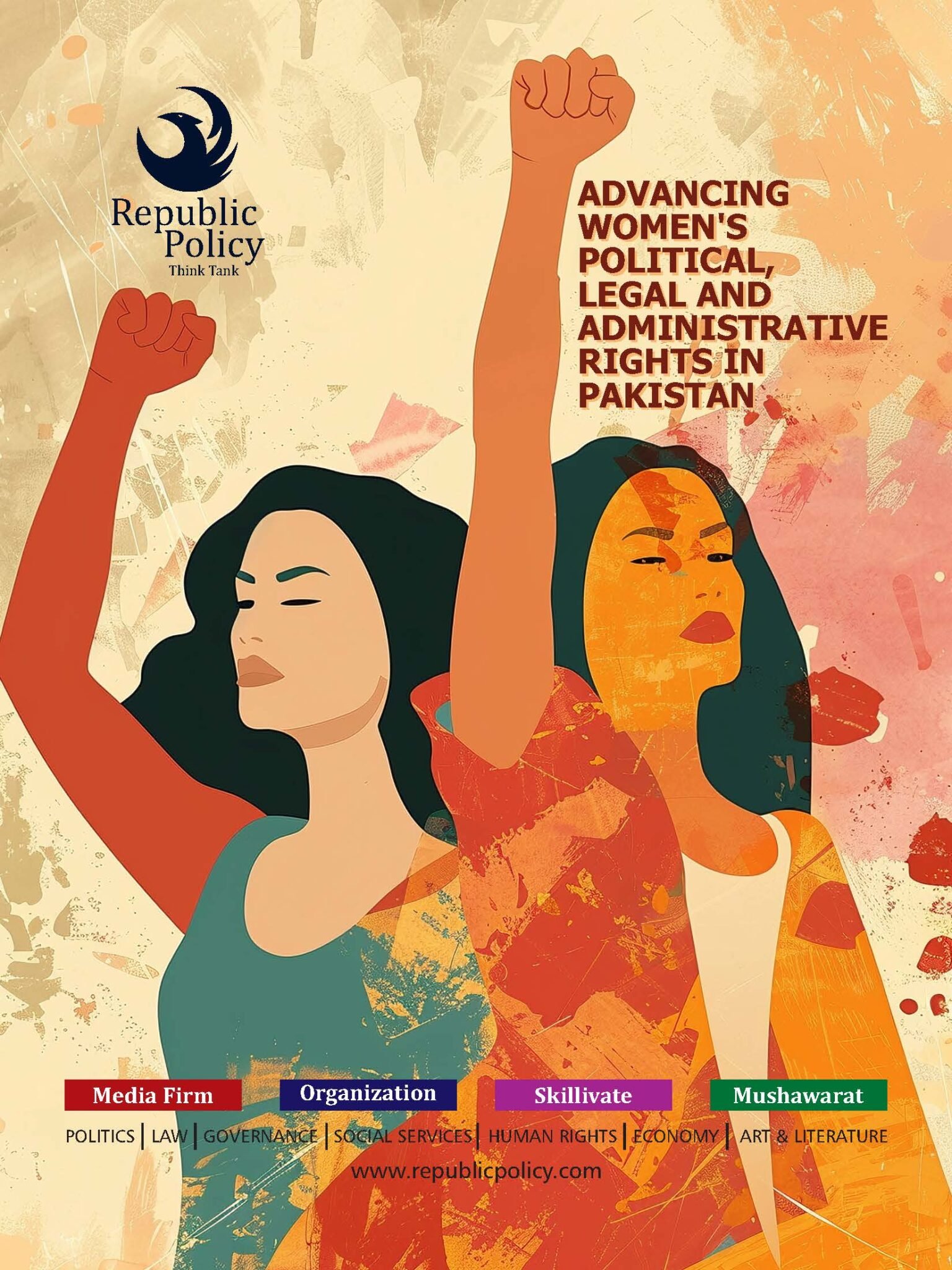Zubair Ahmed Khan
The 2024 elections witnessed approximately 60 million voters heading to the polls to elect representatives across 265 National Assembly and 590 Provincial Assembly constituencies. Despite a backdrop of political upheaval, discord, and polarization, all political parties remained in the electoral race, demonstrating resilience in Pakistan’s democratic landscape.
The report highlights several key aspects:
- Pre-Election Challenges and Media Role:
- While allegations of an unlevel playing field persisted, the media played a crucial role in keeping voters informed. Despite perceived restrictions on media freedoms, print, electronic, and digital media continued to contribute significantly to the political and electoral process.
- Independent civil society groups also focused on rights and liberties during the election process.
- Election Commission of Pakistan (ECP):
- The ECP organized the country’s largest electoral exercise, involving a substantial number of candidates and voters. Over 1.1 million election officials worked diligently in a challenging political environment.
- However, the delay in preparing and announcing preliminary election results raised questions about the credibility of the election outcome.
- Form-45 and Form-47:
- FAFEN assessed various forms, including Form-45 (Result of the Count) and Form-47 (Provisional Consolidated Statement of Results of the Count).
- Form-45 provides data on the results, while Form-47 offers a consolidated view of the count. The report acknowledges that some political parties faced challenges in accessing these forms promptly.
- Data Reliability and Court Challenges:
- The report relies on data such as total casted votes, female votes, male votes, and rejected votes. However, some of this data has been contested in courts.
- Notably, the report does not suggest manipulation of vote counts on Form-47.
- Ensuring the accuracy of Form-47 is crucial for a comprehensive analysis, and its alignment with Form-45 is essential.
Importantly, while the FAFEN report provides valuable insights, addressing concerns related to data accuracy and transparency remains pivotal for maintaining public trust in electoral processes.
Fafen’s preliminary report raises crucial concerns about the integrity and transparency of the recent Pakistani elections, despite acknowledging an otherwise orderly polling process. Here’s a critical evaluation of their findings:
Strengths:
- Comprehensiveness: The report covers a wide range of issues, from polling station irregularities to the lack of transparency in result management.
- Data-driven: Fafen utilizes concrete data and percentages to support their claims, making the report credible and objective.
- Focus on transparency: The report highlights the importance of transparency in various stages of the election process, including the result management and candidate scrutiny.
Weaknesses:
- Limited scope: The report focuses on Fafen’s observations and doesn’t dissect deeper into possible causes or solutions.
- Lack of comparative analysis: Comparing the observed irregularities with past elections could provide context and highlight potential improvements.
- Omission of potential biases: While acknowledging the violation of legal provisions, the report doesn’t discuss potential biases influencing these violations.
- The Data of the report analysis is yet to be clarified by the courts.
- The report is limited to operations and does not provide the facts and figures of the data of votes.
- The reports also lack an analysis of the rigging claims of different parties.
- The report also does not specifically highlight the performance of the ROs and other post ballot activities.
Key Concerns:
- Lack of transparency in result management: Fafen’s restricted access to result tabulation processes and the delay in publishing progressive results raise serious concerns about potential manipulation.
- Disregard for legal provisions: The violation of legal requirements, such as providing copies of result forms and allowing observers, undermines the legitimacy of the process.
- Exclusion of ballots: The high number of excluded ballots, exceeding the margin of victory in several constituencies, requires further investigation and explanation.
Fafen’s report provides valuable insights into the shortcomings of the recent Pakistani elections. At the same time, the report acknowledges the orderly conduct of the polling process, the lack of transparency and disregard for legal provisions cast a shadow over the overall credibility of the election outcome. Further investigation and analysis are necessary to determine the full extent of these issues and ensure future elections are conducted with greater transparency and accountability.
Additional Points to Consider:
- The report mentions the caretaker government’s suspension of internet services as undermining transparency. While security concerns are understandable, the impact on public access to information needs further discussion.
- The late delimitation of constituencies raises questions about fairness and preparedness. Analyzing its impact on different parties and candidates could be beneficial.
- The report acknowledges the “closure” to a period of uncertainty. However, it’s crucial to address the underlying issues to prevent future instability and ensure public trust in the electoral process.
By critically evaluating Fafen’s report and considering these additional points, we can gain a deeper understanding of the recent Pakistani elections and work towards ensuring future elections are conducted with greater transparency and integrity.
The 2024 Pakistani elections, marked by high voter turnout and participation amidst political tension, raise important questions about the integrity and transparency of the process. The FAFEN report sheds light on several crucial aspects and highlights areas demanding further scrutiny.
Positive Aspects:
- High Voter Turnout: The participation of approximately 60 million voters signifies the continued faith and engagement of the Pakistani people in democracy.
- Media Role: Despite alleged limitations, the media played a critical role in informing voters and contributing to the electoral process.
- ECP Efforts: The Election Commission of Pakistan conducted a massive electoral exercise involving millions of officials and voters in a challenging environment.
Concerns and Areas for Improvement:
- Credibility Questions: The delay in announcing preliminary results raises concerns about the legitimacy of the outcome, requiring thorough investigation and explanation.
- Form-45 and Form-47 Discrepancies: Discrepancies between Form-45 (individual polling station results) and Form-47 (consolidated results) demand close scrutiny and potential reconciliation to ensure data accuracy.
- Limited Access to Forms: Challenges faced by some parties in accessing Forms-45 and 47 raise concerns about transparency and equal opportunities for scrutiny.
- Contested Data: Reliance on data challenged in courts, including total votes and rejected votes, necessitates further verification and addressing legal issues.
- Alleged Manipulation: While the report doesn’t explicitly claim vote count manipulation, thorough investigation into any allegations is crucial for public trust.
The FAFEN report provides valuable insights but leaves room for further analysis and addressing concerns. Ensuring accurate data, transparency in processes, and timely resolution of legal challenges are critical for maintaining public confidence in Pakistan’s electoral system.
Additional Points:
- The report could delve deeper into the specific reasons for delays and discrepancies in forms.
- It would be beneficial to consider the broader context of political polarization and its impact on the electoral process.
- Collaboration with other election observation groups and independent investigations would offer a more comprehensive perspective.
By addressing these issues and fostering transparency at all levels, Pakistan can strengthen its democratic institutions and ensure future elections are conducted with greater public trust and legitimacy.
Please, subscribe to the YouTube channel of republicpolicy.com

















